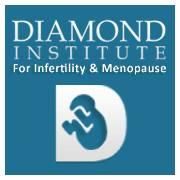What Is Egg Freezing?

Many factors can cause a woman to worry about her eggs, from genetics to age. If you don't want to give up on the possibility of future children, you're probably wondering about treatments that can extend fertility, such as egg freezing. Here's everything you need to know about this procedure.
What Does Egg Freezing Involve?
First, women will consult with their doctor and decide upon a goal number of eggs. This amount can vary by individual, but research suggests that 10 to 15 eggs should be harvested for each planned pregnancy. Then, a series of hormone injections will be scheduled. These stimulate the ovaries to produce over one egg each cycle, decreasing the time needed to gather the desired number. As a precaution, doctors will schedule a series of monitoring appointments to ensure your hormonal response to these injections is within the normal range.

Retrieval will take place just before the standard point of ovulation in the menstrual cycle. This minor surgical procedure takes place under light sedation. Since the surgeon brings the eggs out through the natural passage of the vagina, recovery is simple and will probably consist only of mild cramping. Once retrieved, a fertility specialist will assess the eggs to ensure they are mature enough to be used for future pregnancy attempts. The viable ones are then frozen in a process known as vitrification.
Who Can It Benefit?
Egg freezing can benefit anyone who still wants children but is worried about their fertility. With many couples waiting until later in life to start a family, the treatment offers a longer window of opportunity to conceive. Chromosomal abnormalities in eggs also rise with age, so going through the freezing procedure in advance allows an older woman a better chance at having a healthy baby. It also provides opportunities for anyone undergoing chemotherapy or ovarian surgery to preserve viable eggs without risking their long-term health.
How Should You Prepare?
Egg freezing relies on natural body cycles and requires little physical preparation. Patients will want to prepare by budgeting for both the treatments, which can take several cycles to complete, and securing funds to cover storage for the frozen eggs. It's worth checking with your care provider and insurance company to see what financial support is available.
If you're looking for a thoughtful care provider who can support your egg freezing journey, reach out to Diamond Institute for Infertility & Menopause in Millburn, NJ. Dedicated to helping families achieve their fertility goals, they've performed egg freezing procedures since 2003. Call (973) 761-5600 to schedule a consultation, or visit their website to learn more about their available services.
About the Business
Have a question? Ask the experts!
Send your question

